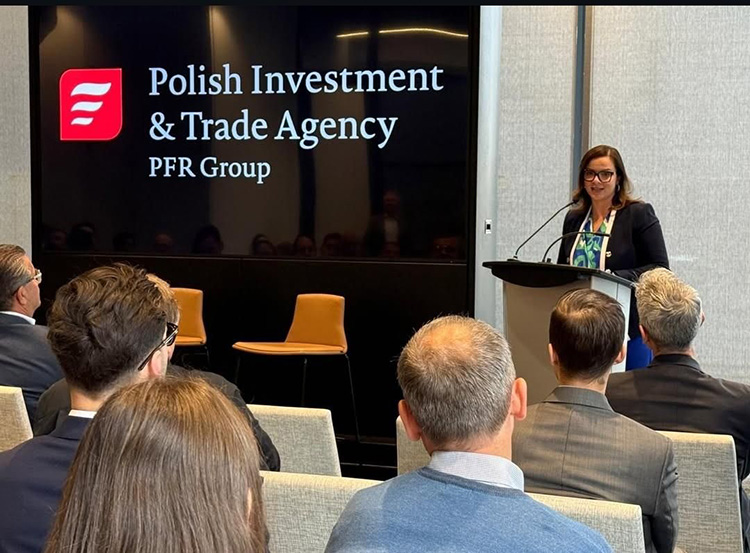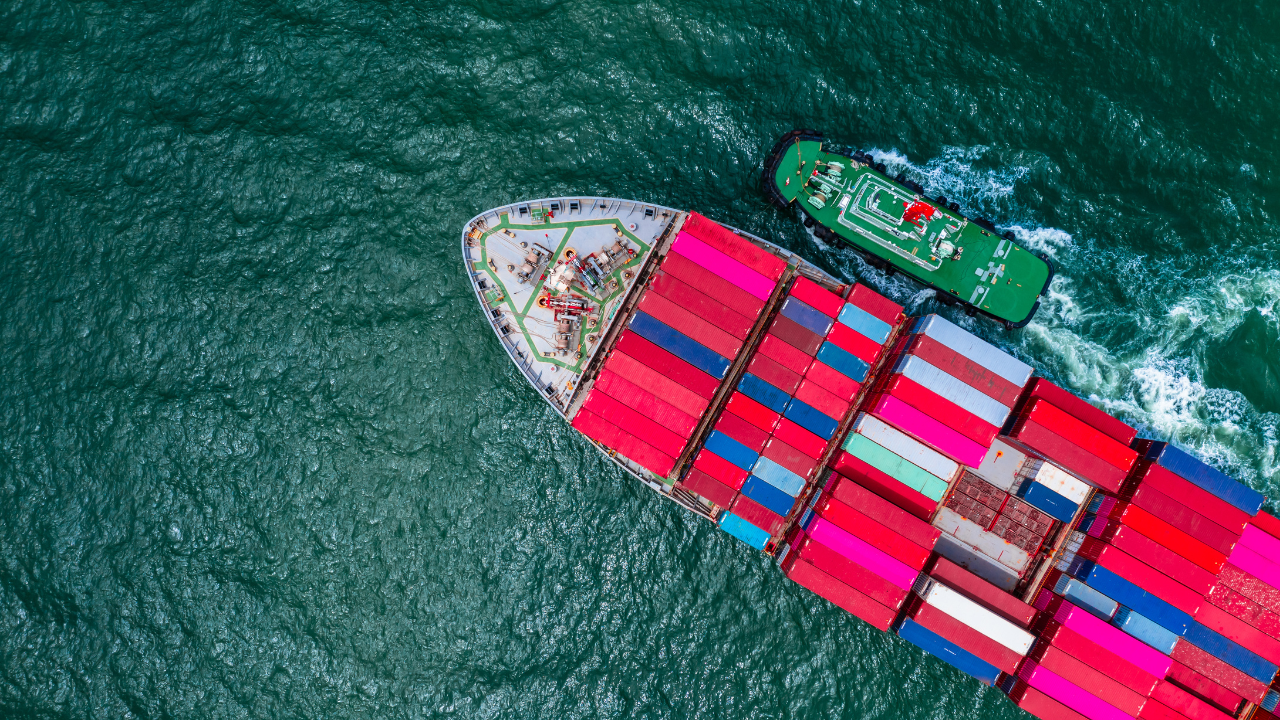
Poland is emerging as Europe’s clean growth gateway — where policy, innovation, and investment are aligning faster than anywhere else in the region. That was the message from the Polish Investment and Trade Agency (PAIH) at Greentech in Action: Poland–Canada Collaboration for a Sustainable Future, a full-day forum co-hosted with the World Trade Centre Toronto.
“Poland and Canada are aligned — not just in opportunity, but in responsibility,” said Marek Ciesielczuk, Consul General of Poland in Toronto. “Together, we’re building a partnership that connects innovation with implementation — and turns shared climate goals into shared economic growth.”
Now a $1 trillion economy, Poland has become one of Europe’s most dynamic markets — pairing economic strength with climate ambition. Its rapid transition from coal to renewables and leadership in clean manufacturing make it a cornerstone of Europe’s green economy.
For Canada, the opportunity is clear: Poland offers a bridge to Europe’s 450-million-person market — a gateway for Canadian clean technology to scale through partnership, deployment, and shared climate goals.
“Clean growth isn’t a single initiative, it’s an ecosystem,” said Jon Worren, Vice President of the World Trade Centre Toronto. “We have the talent. We have the technology. What we need is the bridge from Canadian innovation to European deployment — and that bridge increasingly runs through Poland.”
A Partner with Momentum
Poland’s transformation is already underway. From record renewable investments to an expanding industrial base, it has become one of Europe’s fastest-growing green economies.
“Poland is a gateway to both Western and Eastern Europe,” emphasized Adam Kalinski, Trade Commissioner at the Embassy of Canada to Poland. “Canadian firms have a chance not just to export, but to integrate into supply chains that serve all of Europe.”
The partnership is already producing results — with $2.68 billion in bilateral trade recorded in the first half of 2024, marking a sharp rise in two-way investment and collaboration.

Innovation in Action
The event also spotlighted clean mobility innovators shaping the future of transport and infrastructure across both countries:
- Krzysztof Zdziarski, President & CEO, PESA Bydgoszcz S.A., showcased advances in lightweight, hydrogen-ready rail vehicles designed to make public transport faster, greener, and more efficient.
- Julio Mayorga, Commercial Director, Solaris Bus & Coach, shared how Solaris — now Europe’s top electric bus provider — is delivering zero-emission fleets to cities across the EU and collaborating with Canadian fuel cell manufacturers.
- Luke Mellor, Director of Marketing, Pantonium Inc., presented Toronto-based AI software that powers on-demand public transit in underserved communities — bridging data-driven mobility solutions between continents.
- Slawomir Jarzabkowski, Director of Business Development, MEDCOM Sp. z o.o., discussed energy systems and power electronics that are making Europe’s public transit networks cleaner and more efficient.
- India Saunders, Project Engineer, RDA Atlantic Inc., brought a Canadian perspective on scaling clean infrastructure projects and the importance of international partnerships in achieving sustainable growth.
Their collective message was clear: innovation needs systems — grid capacity, policy alignment, and people to operate the networks that bring clean technology to life.

Key Takeaways
Cleantech is trade and diplomacy
Green technology isn’t just a business sector. It’s a platform for international partnerships grounded in climate action, energy security, and resilience.
CETA reduces risk, but relationships close deals
Trade agreements create access. Collaboration depends on people knowing who to call — and programs like IRAP, EUREKA, and Trade Commissioner Services make that possible.
Transit is the proving ground
Electric buses, hydrogen-ready rail, and AI-powered routing are changing cities across Europe. Canada can both learn and lead — but infrastructure investment must match ambition.
Europe is a market, a partner, and a launchpad
Through Poland, Canadian firms can tap into a 450-million-person market, connect with buyers across the EU, and establish credibility in a system that values sustainable, secure, and friend-shored supply chains.
The collaboration has already begun
From Canadian fuel cells in Polish vehicles to joint ventures in battery manufacturing and cross-border transit pilots, the groundwork is laid. Now it’s time to scale.



